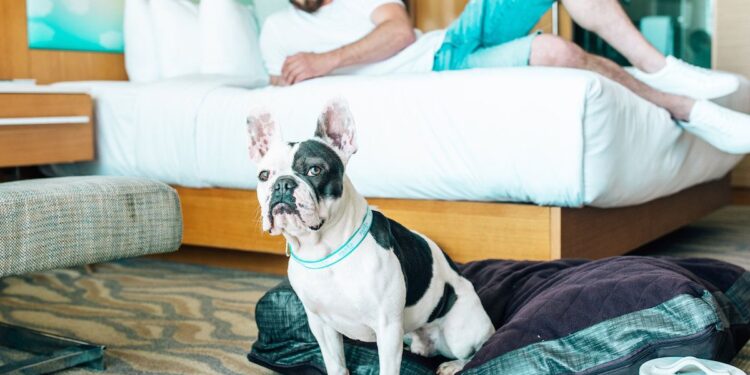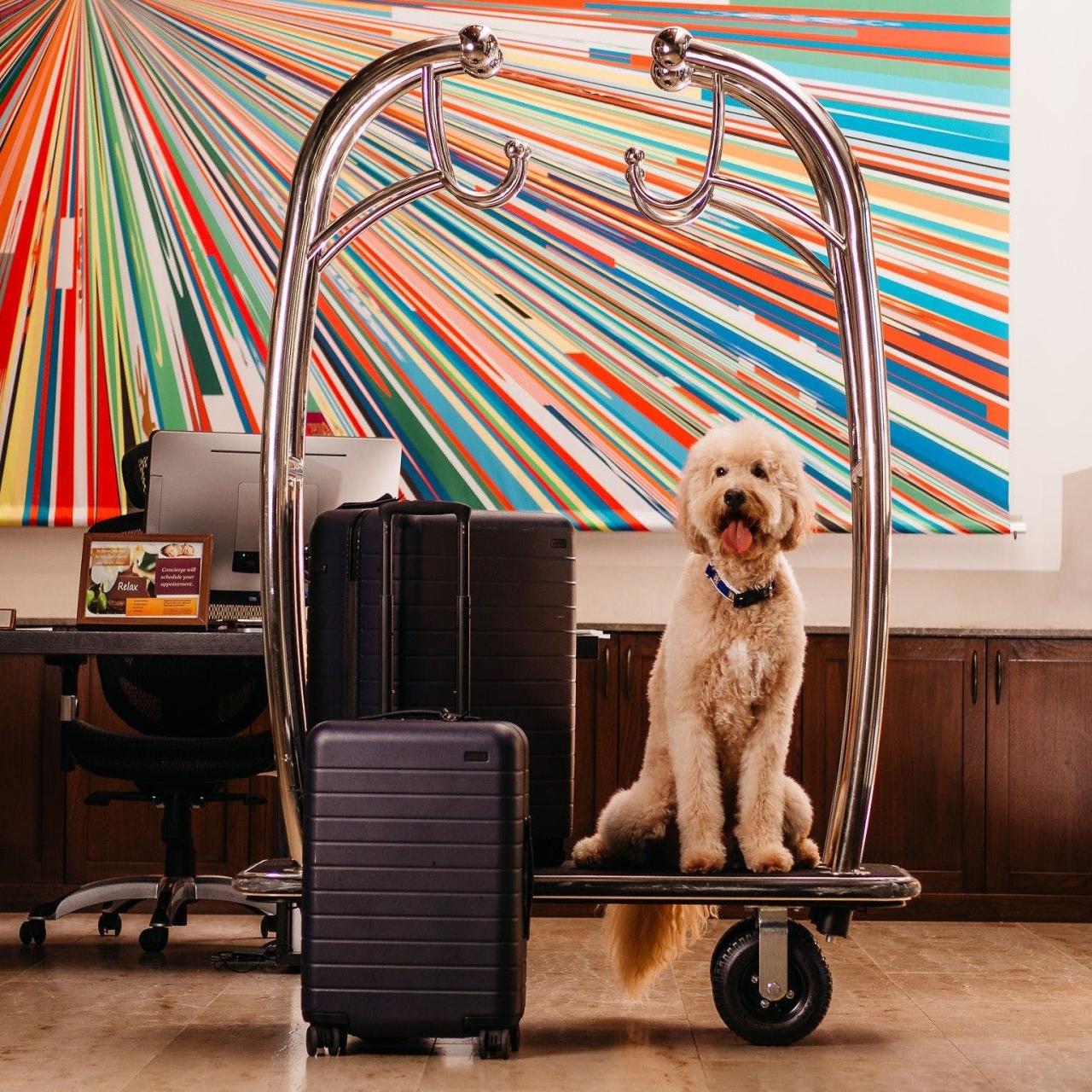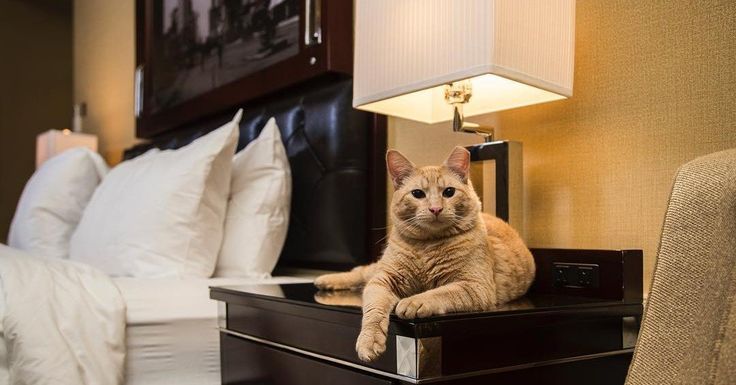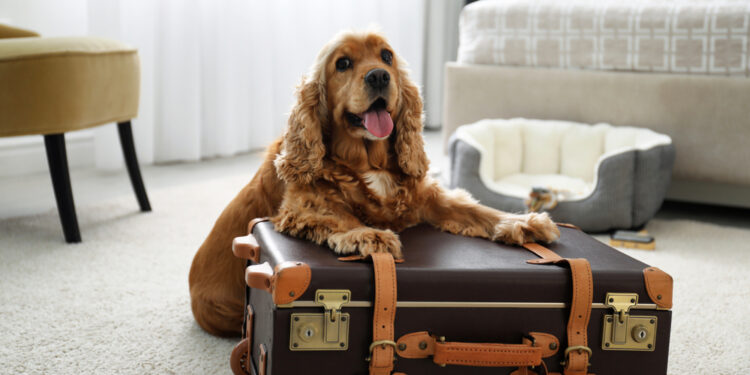Pet-Friendly Hotels: Traveling With Companions
The landscape of modern travel has dramatically shifted, and one of the most significant changes has been the rise of pet-friendly hotels. For millions of pet owners worldwide, our furry, feathered, or even scaly companions are not just animals; they are cherished members of the family. The thought of leaving them behind when embarking on a journey, whether for leisure or business, can be a major deterrent. Recognizing this deeply rooted bond, the hospitality industry has increasingly adapted, transforming from a largely pet-exclusive environment to one that warmly welcomes our beloved companions. This comprehensive article will delve into every facet of traveling with pets, exploring the benefits, challenges, best practices, and the evolving features that define a truly pet-friendly establishment. Our aim is to provide an exhaustive guide for pet owners looking to make their travel experiences seamless, stress-free, and enjoyable for both themselves and their animal companions.
The Growing Trend: Why Pet-Friendly Travel Matters
The surge in pet ownership globally, coupled with a cultural shift that sees pets as integral family members, has propelled pet-friendly travel from a niche offering to a mainstream expectation. This isn’t just a fleeting trend; it reflects a fundamental change in how people live and travel.
A. The Emotional Bond and Pet Well-being
For many, a pet provides unconditional love, companionship, and emotional support. Separating from them, even for a short trip, can cause significant anxiety for both the owner and the pet.
- Reducing Separation Anxiety: Leaving a pet behind can lead to stress, behavioral issues, and even health problems for the animal. For owners, the guilt and worry can detract from the enjoyment of their trip. Pet-friendly options alleviate this burden.
- Enhancing the Travel Experience: For many, the joy of experiencing new places is amplified when shared with a beloved companion. A walk in a new park, a quiet evening in a hotel room, or simply having their familiar presence can make a trip feel more complete and comforting.
- Preventing Pet Rehoming or Kenneling: The high cost and potential stress of boarding facilities, or the lack of trusted caregivers, can sometimes force pet owners to limit their travel or, in extreme cases, consider rehoming. Pet-friendly hotels provide a viable alternative.
B. Economic Impact and Market Demand
The pet industry is a multi-billion dollar sector, and pet travel contributes a significant portion to this economy. Hotels, airlines, and even local businesses recognize the immense financial opportunity.
- Loyalty and Repeat Business: Hotels that genuinely welcome pets often foster immense loyalty among pet owners, leading to repeat bookings and positive word-of-mouth referrals.
- Increased Spending: Pet owners are often willing to spend more on accommodations and services that cater to their pets’ needs, including pet fees, specialized amenities, and pet-related services offered by the hotel.
- Competitive Advantage: In a crowded hospitality market, offering robust pet-friendly policies can be a strong differentiator, attracting a segment of travelers that competitors might overlook or inadequately serve.
C. Shifting Perceptions and Social Acceptance
Societal views on pets have evolved from seeing them merely as animals to recognizing their status as family members. This shift is reflected in public spaces and businesses.
- Pet-Friendly Public Spaces: More parks, restaurants with patios, and retail stores are becoming openly pet-friendly, creating a wider ecosystem that supports travel with companions.
- Online Communities and Resources: The proliferation of online forums, blogs, and dedicated apps for pet travel makes it easier for owners to find and share information about pet-friendly accommodations and activities.
- Positive Brand Image: Hotels that embrace pet inclusivity are often seen as progressive, empathetic, and understanding of modern traveler needs, enhancing their brand image.
What Defines a Truly Pet-Friendly Hotel?
Beyond merely allowing pets on the premises, a truly pet-friendly hotel goes the extra mile to ensure comfort, safety, and convenience for both human and animal guests. This involves a combination of clear policies, thoughtful amenities, and a welcoming attitude.
A. Clear and Transparent Pet Policies
The foundation of a good pet-friendly hotel is clear communication regarding its rules and expectations. This avoids misunderstandings and ensures a smooth stay.
- Size and Breed Restrictions: Many hotels have limitations on pet size (e.g., under 50 lbs) or specific breed restrictions, often due to insurance policies or concerns about potential damage/behavior. Transparently stating these beforehand is crucial.
- Number of Pets Allowed: Some hotels permit only one pet per room, while others may allow two or more, often with an additional fee per pet.
- Designated Pet Areas: Clear guidelines on where pets are allowed (e.g., lobby, certain floors, designated outdoor relief areas) and prohibited (e.g., dining areas, pools, fitness centers).
- Pet Fees: Whether a one-time fee, a nightly charge, or a refundable deposit, transparency about costs is essential. Some luxury hotels might even include pet amenities in the room rate.
- Leash Requirements and Supervision: Mandating that pets are leashed in public areas and not left unattended in rooms for extended periods is a common and necessary policy for safety and guest comfort.
- Behavioral Expectations: Policies regarding excessive barking, aggressive behavior, or damage to property are important for maintaining a harmonious environment for all guests.
B. Thoughtful Pet-Specific Amenities
The truly pet-friendly establishments go beyond basic allowance by providing amenities that cater directly to a pet’s needs, enhancing their comfort and convenience.
- Welcome Kits: Often including treats, a toy, waste bags, and local pet-friendly attraction guides.
- In-Room Comforts: Providing pet beds, food and water bowls, and sometimes even a placemat.
- Designated Relief Areas: Clearly marked outdoor areas with waste stations (bags and disposal bins) for pets to relieve themselves.
- Pet Menus or Dining Options: Some high-end hotels offer gourmet pet menus, or allow pets in designated dining areas (e.g., outdoor patios).
- Walking Services or Pet Sitting: For an additional fee, some hotels may offer dog walking services or connect guests with local reputable pet sitters, providing convenience for owners exploring non-pet-friendly attractions.
- Pet First Aid Kits: A readily available kit for minor pet emergencies is a sign of preparedness.
C. Staff Training and Welcoming Attitude
Beyond policies and amenities, the attitude of the hotel staff is paramount. A genuine welcome makes all the difference.
- Pet-Loving Staff: Staff members who are genuinely comfortable and happy interacting with pets create a more welcoming atmosphere.
- Knowledge of Local Pet Resources: Concierge or front desk staff who can recommend local vets, pet stores, parks, groomers, or pet-friendly restaurants are invaluable.
- Proactive Assistance: Offering water to a dog in the lobby, or asking if the pet needs anything, shows genuine consideration.
Planning Your Pet-Friendly Getaway: A Step-by-Step Guide
Thorough planning is crucial for a smooth and enjoyable trip with your pet. Spontaneity can lead to unwelcome surprises when pets are involved.
A. Researching and Booking Accommodations
This is the most critical first step, requiring careful attention to detail.
- Start Early: Pet-friendly rooms, especially those with specific features, can be limited. Book well in advance, particularly during peak seasons.
- Utilize Pet-Specific Search Filters: Websites like Expedia, Booking.com, and specific pet travel sites (e.g., BringFido, PetsWelcome) have filters to identify pet-friendly hotels.
- Read Reviews: Look for reviews from other pet owners to gauge the hotel’s actual pet-friendliness, not just its advertised claims.
- Confirm Directly with the Hotel: Even after booking online, call the hotel directly to re-confirm their current pet policy, fees, and any specific restrictions (e.g., “pets must be kenneled if left alone”). Policies can change, and online information might be outdated.
- Inquire About Room Location: Some hotels place pet owners on specific floors or in rooms near exits for convenience, which can be a huge benefit.
B. Preparing Your Pet for Travel
A well-prepared pet is a happy traveler. This involves health checks, essential supplies, and behavioral considerations.
- Vet Visit: Schedule a check-up before your trip. Ensure all vaccinations are up to date and obtain a health certificate if traveling internationally or to certain states/regions. Discuss any anxiety medications if your pet is prone to travel stress.
- Identification: Ensure your pet has up-to-date ID tags with your current phone number and microchip information. Consider a temporary tag with your travel contact number.
- Pack Essentials:
- Food and Water: Enough for the entire trip, plus extra, and their regular bowls.
- Medications: Any prescribed medications, clearly labeled.
- Leash, Collar, Harness: Always keep your pet secured in public.
- Comfort Items: Familiar toys, blankets, or a bed to provide a sense of security in a new environment.
- Waste Bags: Plenty for walks and relief areas.
- Crate/Carrier: Essential for safe travel in a vehicle or plane, and often required when leaving your pet unattended in the hotel room.
- Grooming Supplies: Brushes, wipes, or any specific grooming needs.
- Proof of Vaccination/Health Certificate: Keep these easily accessible.
- Practice Short Trips: If your pet isn’t used to car travel, start with short, positive trips to help them acclimate. Reward good behavior.
- Maintain Routine: As much as possible, try to stick to your pet’s regular feeding, walking, and sleep schedule to minimize stress.
C. During Your Stay: Ensuring a Smooth Experience
Once you’ve arrived, mindful behavior from both you and your pet is key to a positive experience for everyone.
- Check-In Politely: Inform the front desk upon arrival that you have a pet, even if you’ve already noted it in your reservation.
- Observe Hotel Rules: Strictly adhere to all pet policies, including leash laws in public areas and designated relief zones.
- Manage Noise: Prevent excessive barking or whining, especially if leaving your pet alone. Consider a “Do Not Disturb” sign on the door that indicates a pet is inside, or a special tag provided by the hotel.
- Accidents Happen: Be prepared for accidents. Carry cleaning supplies and immediately report any messes to hotel staff so they can properly clean and sanitize the area.
- Supervise Your Pet: Never leave your pet unattended for long periods, especially if they are prone to anxiety or destructive behavior. If you must leave them, ensure they are crated for their safety and the hotel’s peace of mind.
- Explore Pet-Friendly Localities: Utilize local guides (from the hotel or online) to find nearby pet-friendly parks, walking trails, or cafes.
- Clean Up After Your Pet: This is non-negotiable. Always pick up pet waste promptly and dispose of it properly.
- Respect Other Guests: Not everyone is comfortable around animals. Keep your pet close, especially in shared spaces, and ensure they don’t bother other guests.
Evolving Pet-Friendly Hotel Features and Services
The definition of “pet-friendly” is constantly expanding, with hotels innovating to offer higher levels of service and more unique amenities for their animal guests.
A. Dedicated Pet Concierge Services
Moving beyond basic information, some luxury hotels are introducing staff specifically trained to assist pet owners.
- Local Pet Itinerary Planning: Helping guests find the best pet-friendly hiking trails, dog beaches, or cafes.
- Vetting Local Pet Services: Providing recommendations for reputable groomers, emergency vets, or pet sitters in the area.
- Arranging Pet Transportation: Organizing private car services that allow pets.
B. Specialized Pet Programs and Events
Hotels are starting to host events or offer programs tailored to pets and their owners, fostering a sense of community.
- “Yappy Hour”: Social events where guests and their dogs can mingle, often with pet-friendly snacks and beverages.
- Pet Photography Sessions: Professional photographers on-site for memorable pet portraits.
- Obedience Training Consultations: Partnering with local trainers for quick tips or private sessions.
C. Designated Pet-Friendly Zones and Rooms
Some hotels are going beyond simply allowing pets into standard rooms, creating spaces specifically designed for them.
- Pet-Specific Floors: Dedicated floors where all rooms are pet-friendly, sometimes with more durable flooring or easy-to-clean surfaces.
- Rooms with Outdoor Access: Ground-floor rooms with small patios or direct access to a grassy area for convenience.
- Pet Spas or Grooming Stations: Dedicated areas for washing muddy paws or giving a quick brush.
D. Partnerships with Pet Brands and Charities
Collaborations with pet product companies or animal welfare organizations can enhance the guest experience and build a positive brand image.
- Branded Amenities: Providing high-quality pet food, treats, or beds from premium pet brands.
- Charitable Donations: A portion of pet fees going to local animal shelters or rescue organizations, allowing guests to feel good about their contribution.
Challenges and Considerations for Pet-Friendly Hotels
While the trend is overwhelmingly positive, hotels face unique challenges when catering to pets, and awareness of these helps foster mutual respect between guests and management.
A. Managing Allergies and Cleanliness
This is perhaps the most significant challenge. Hotels must ensure comfort and safety for all guests, including those with severe pet allergies.
- Deep Cleaning Protocols: Implementing rigorous cleaning and sanitization procedures in pet-friendly rooms after each stay to remove pet dander and odors.
- Designated Pet-Free Zones: Maintaining certain floors or wings as strictly pet-free areas to accommodate guests with allergies.
- High-Quality Filtration Systems: Investing in HVAC systems with advanced air filtration to minimize allergens throughout the property.
B. Noise and Behavioral Issues
Unruly pets can disrupt the experience for other guests.
- Barking/Whining: Hotels must have policies in place to address excessive noise from pets, often involving contacting the owner or, in extreme cases, requiring the pet’s removal.
- Damage to Property: Pets can cause damage to furniture, carpets, or fixtures. Pet fees or deposits are often implemented to cover potential costs.
- Aggression: Policies must address aggressive behavior towards other guests or pets, ensuring safety for everyone.
C. Staff Training and Liability
Ensuring staff are prepared and understanding the legal implications.
- Pet First Aid: Training staff in basic pet first aid to respond to minor incidents.
- Liability Concerns: Hotels must navigate liability issues related to pet bites or injuries caused by a guest’s pet. Clear waivers and insurance coverage are crucial.
- Consistency: Ensuring all staff members are aware of and consistently enforce pet policies to avoid confusion or frustration among guests.
The Future of Pet-Friendly Travel
The trajectory for pet-friendly travel is one of continuous growth and innovation. As pet ownership continues to rise and the bond between humans and animals deepens, the hospitality industry will continue to adapt in exciting ways.
A. Smart Technology for Pets
Integration of technology beyond basic check-in.
- In-Room Pet Monitoring: Hotels offering smart cameras in rooms (with guest permission) that allow owners to check on their pets remotely via an app.
- Automated Feeders/Waterers: Rooms equipped with smart feeders that dispense food at scheduled times.
- Wearable Tech Integration: Partnership with pet wearable companies (GPS trackers, health monitors) to offer enhanced services or discounts.
B. Immersive Pet Experiences
Beyond just being allowed, pets will be part of curated experiences.
- Adventure Packages: Hotels partnering with local outfitters for pet-friendly excursions like kayaking, hiking, or paddleboarding.
- Pet Wellness Retreats: Dedicated retreats focusing on pet health, agility, or specialized training, often combined with human wellness programs.
- Celebration Packages: Offering special amenities for pet birthdays or “gotcha-days.”
C. Accessibility for All Service Animals
While pet-friendly policies are discretionary, hotels have legal obligations regarding service animals. The future will see continued improvement in understanding and accommodating these vital companions, ensuring seamless access for individuals with disabilities. This includes:
- Staff Training on ADA/Local Laws: Comprehensive training for all hotel staff on the legal rights and responsibilities concerning service animals, distinguishing them from emotional support animals or pets.
- Dedicated Service Animal Support: Providing specific, proactive support for guests with service animals, such as easily accessible relief areas, or assistance with navigating the property.
- Clear Communication: Ensuring websites and reservation systems clearly articulate policies for service animals, removing any ambiguity.
Conclusion
The evolution of pet-friendly hotels marks a significant advancement in the travel industry, reflecting a deeper understanding of the profound relationship between humans and their animal companions. What started as a simple allowance has blossomed into a sophisticated offering, complete with tailored amenities, thoughtful services, and a genuine welcoming spirit.
For pet owners, this means unprecedented opportunities to explore the world without the heartache or logistical challenges of leaving their beloved pets behind. However, the success of this growing trend hinges on a shared responsibility. Hotels must continue to innovate, invest in proper infrastructure, and train their staff to cater effectively to their four-legged guests. Simultaneously, pet owners have an essential role to play: by diligently researching policies, preparing their pets adequately, adhering strictly to hotel rules, and ensuring their pet’s good behavior, they contribute to a positive experience for all.
As we look to the future, the bond between humans and animals will only strengthen, and with it, the demand for truly inclusive travel experiences. The journey of pet-friendly travel is still unfolding, promising more innovation, greater convenience, and ultimately, more shared memories for families with their beloved companions. Traveling together isn’t just a trend; it’s a testament to the enduring love we have for our pets, and the hospitality industry is increasingly rising to meet that love with open arms and wagging tails.










